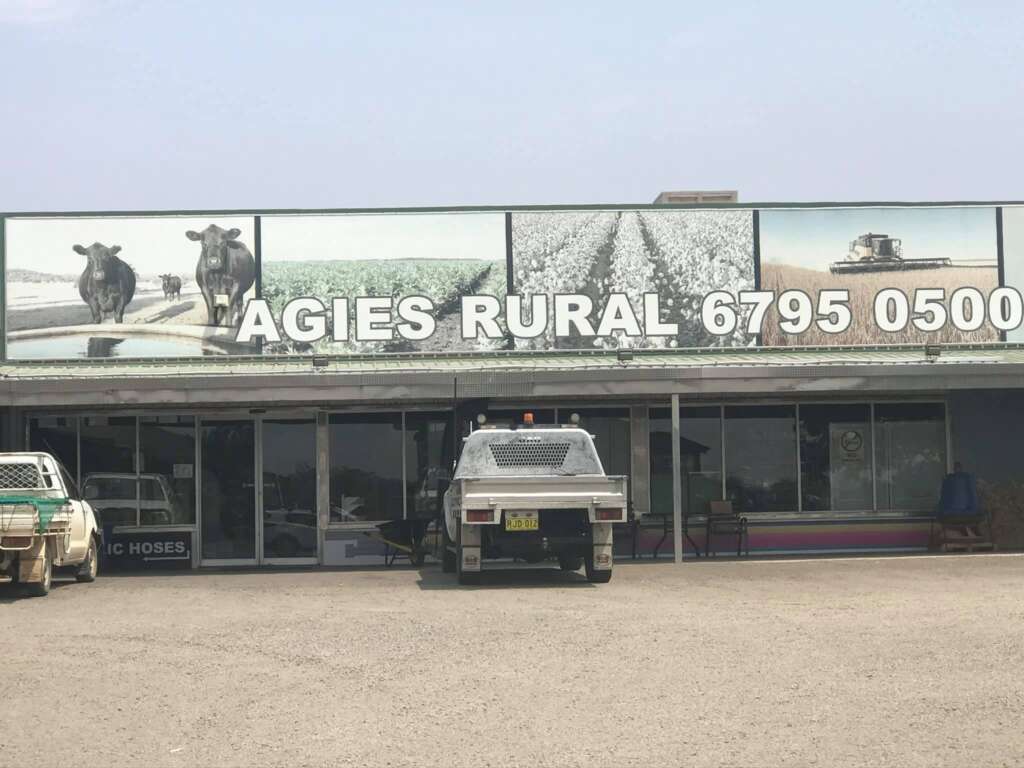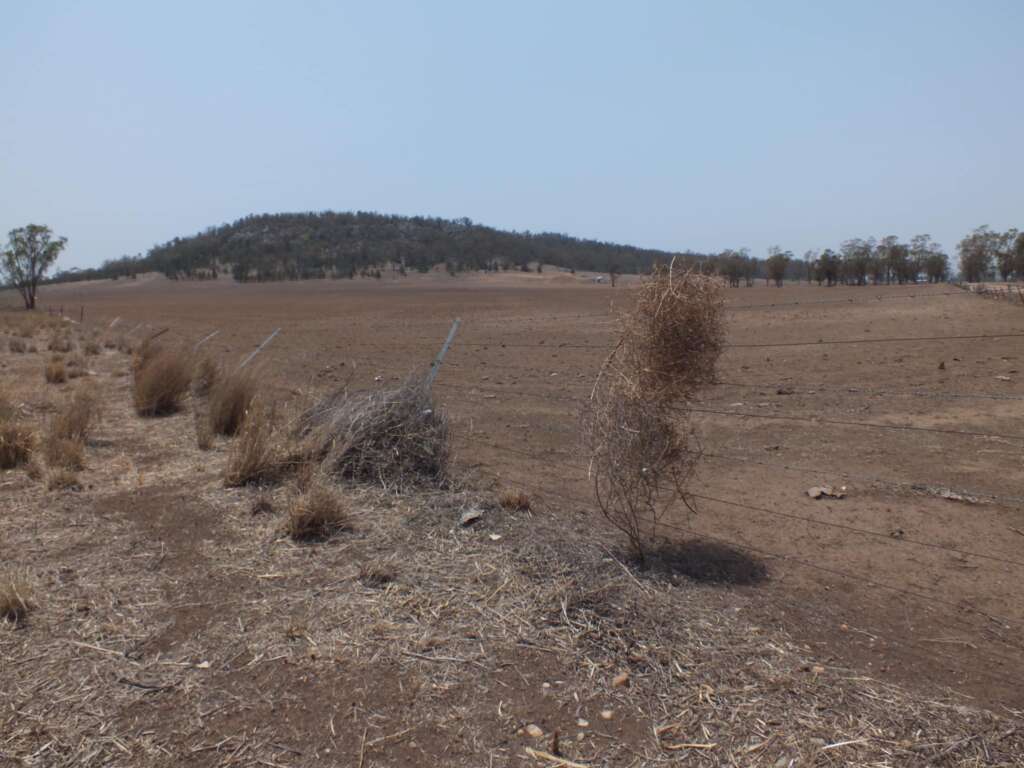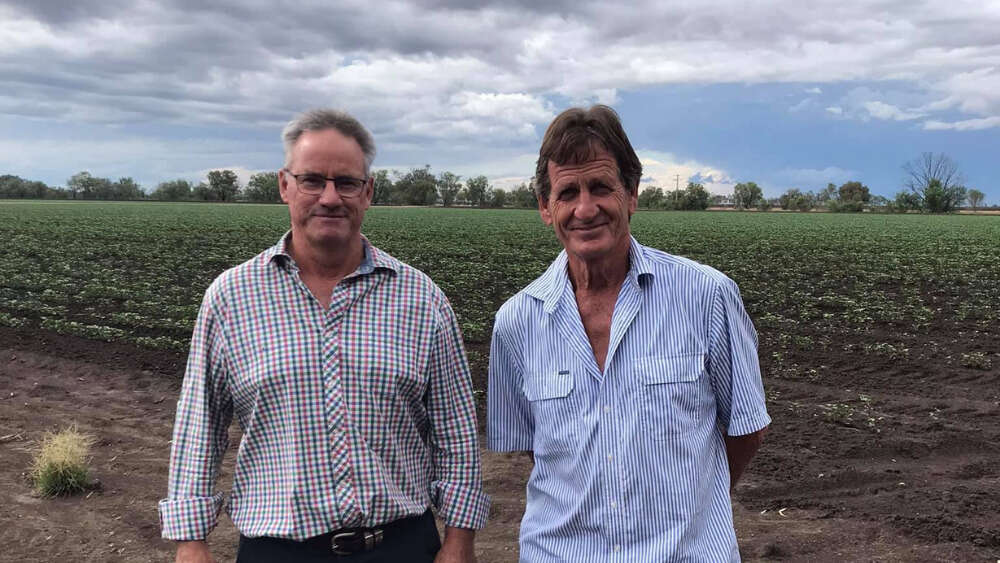In a big “tin shed” on the outskirts of Wee Waa in north-west NSW, stands a business that has been helping spread the gospel for generations.
Agies Rural Retail is “a one-stop shop for all your agricultural supplies”. It is stocked with everything from mowers and chainsaws to pumps, chemicals and work clothing, ice-creams and drinks – with the odd bag of local oranges thrown in.
Last year, Agies Ltd gave more than $450,000, in total, to 23 different Christian ministries.
It’s the only store of its type in the small 2000-resident town of Wee Waa, and is very well supported by the local community that it supports.
Since the late 1970s, Agies has operated with a dual purpose: not only is it a retail store, it’s also part of a Christian fundraising organisation.
“It all started in 1978, when a group of Christian farmers from Wee Waa wanted to be able to raise money to support gospel work. And the way that they were able to do that was to purchase an existing rural retail store in Wee Waa ‘on very good terms’,” Andrew McClenaghan, current chairman of Agies Ltd, explains to Eternity.
That small group of around five Christian farmers created the organisation called Agies Ltd, under the charities legislation, and bought 67 per cent of Agies Rural Retail Store (with the store manager and a few others owning the rest of the store). The Agies Ltd crew decided to use all profits from their share of the store to fund Christian ministries.
“[Agies Ltd] was originally set up to fund the preaching and proclamation of the good news – to promote mission enterprise, education and the training of gospel workers and it really hasn’t changed much from that,” says McClenaghan, who has been part of the group for the past three years.

Agies Rural Retail store in Wee Waa.
Today, there are around 12 members, some of whom are also on the board.
“I suppose you’ve got to be committed to the idea of Agies because there’s no remuneration in it for anyone,” says McClenaghan.
He gives a prime example of this commitment: “Frank Hadley, one of the original signatories of the loan, is still a member of [Agies Ltd] and was on the board until two years ago – so that’s 40 years.”
Agies Ltd went on to purchase another store in the main street of town (selling household goods). They later sold this around 20 years ago, in order to concentrate on the rural retail store which, McClenaghan says, “has continued to thrive”.
“Even during the drought, I think July 2019 was the only month – apart from one month very early on in the store’s running – that it didn’t make a profit. Despite how bad the drought was, it’s very well supported,” says McClenaghan.
And the three-year long drought was certainly bad for Wee Waa, Australia’s “Cotton Capital”. The Bureau of Meteorology described it as the worst drought in “120 years of records” for those towns like Wee Waa situated in the Murray-Darling Basin.
But after double the usual amount of rainfall in 2020 and a bumper harvest, McClenaghan is hoping that means the store will have even more to give to gospel work.
“Since it started raining, the store was making a very tidy profit for the majority of 2020. So I would hope our distribution will go up … We would like to be able to increase it.”

Years of drought haven’t stopped Agies Ltd’s commitment to supporting Christian ministry.
In addition to the store, Agies Ltd has also invested in other ways to generate profits for Christian ministry. They have purchased a share portfolio, as well as a block of land next door to the store with a grain processing plant, “which is just an asset at this stage”, says McClenaghan.
The income from these sources adds up to a seriously impressive contribution towards Christian ministry, which they give twice a year. Last year alone, Agies Ltd gave more than $450,000, in total, to 23 different Christian ministries. These include Bible Society Australia, Church Missionary Society (CMS) Australia, Sydney Missionary and Bible College (SMBC), as well as smaller ministries.
“On the current list, there are 30 [ministries] in the last four years that have been supported … People will send us letters now and again, just asking for a one-off donation, for example, to purchase equipment,” McClenaghan explains.
“Last year we made a one-off donation to Armidale [Anglican] Diocese to do evangelism training. We have supported Crusaders more regularly with a certain amount, but every now and again, they’ll say [for example], ‘We need some helmets for rock climbing’, and they’ll send us a letter, which we’ll consider.”
McClenaghan notes that the amount and allocation of funds is decided by a distribution committee of three board members, which rotates every year.
“The most recent distributions are roughly 65 per cent to mission work and 25 to 30 per cent for education, such as supporting Scripture in schools or we did fund a fellow in Uganda to complete a theological course. And then the remainder, of around 5 per cent, is for what we loosely term ‘good works’, like requests that we get for equipment to run [Christian-based] activities with kids.”
Agies is serious about meeting the amount it pledges to Christian ministries each year – whether in drought or in plenty. “If we don’t make [enough to cover the pledged amount] from the income from the store and from the increasing value of shares or dividends, then some of the shares are sold to make that distribution commitment,” says McClenaghan.
“We feel it’s important for the people at the other end, especially some of the individuals overseas, in particular, because they are really reliant on the money that we send to keep doing what they’re doing.”
Email This Story
Why not send this to a friend?



